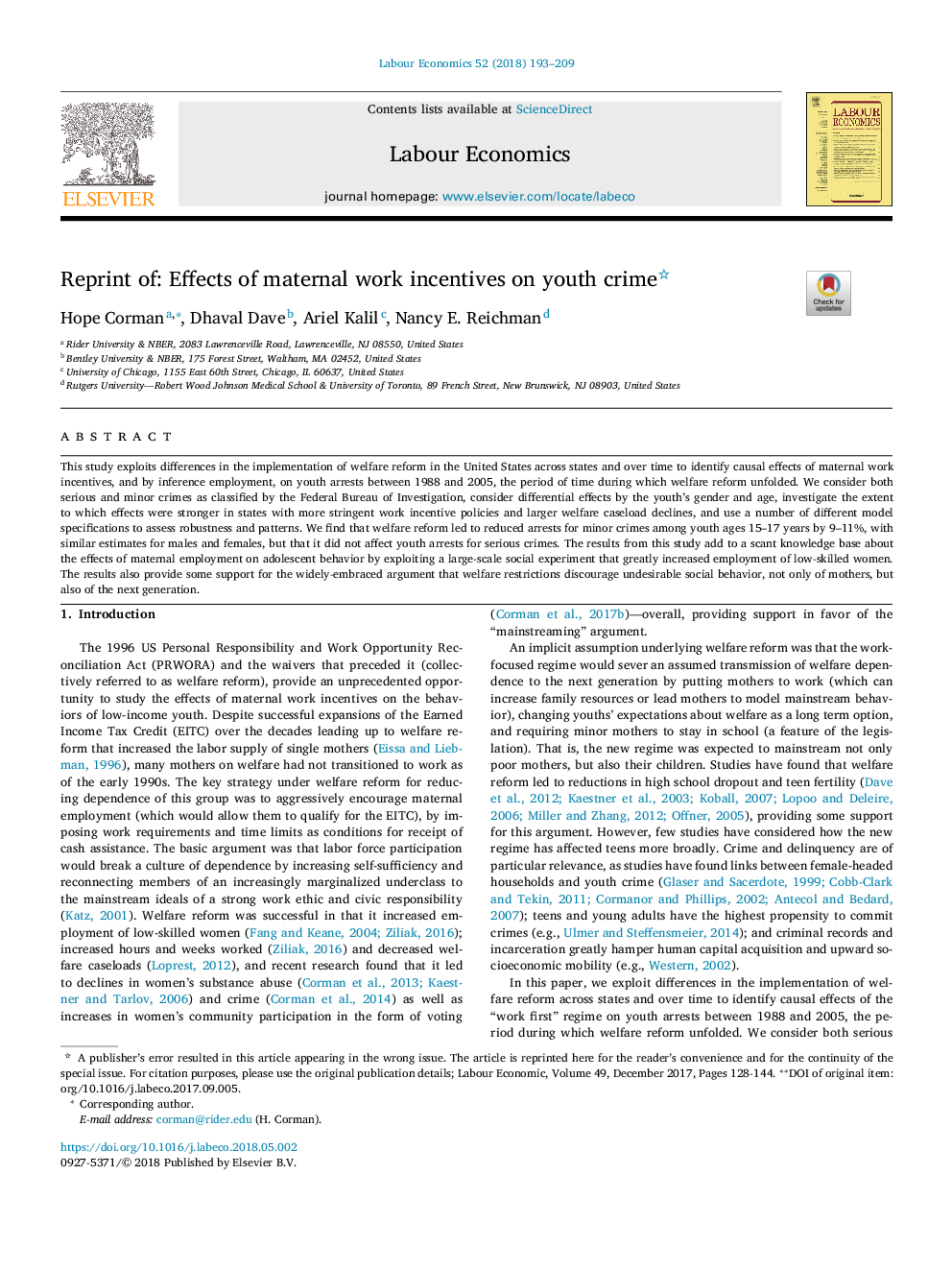| Article ID | Journal | Published Year | Pages | File Type |
|---|---|---|---|---|
| 7371248 | Labour Economics | 2018 | 17 Pages |
Abstract
This study exploits differences in the implementation of welfare reform in the United States across states and over time to identify causal effects of maternal work incentives, and by inference employment, on youth arrests between 1988 and 2005, the period of time during which welfare reform unfolded. We consider both serious and minor crimes as classified by the Federal Bureau of Investigation, consider differential effects by the youth's gender and age, investigate the extent to which effects were stronger in states with more stringent work incentive policies and larger welfare caseload declines, and use a number of different model specifications to assess robustness and patterns. We find that welfare reform led to reduced arrests for minor crimes among youth ages 15-17 years by 9-11%, with similar estimates for males and females, but that it did not affect youth arrests for serious crimes. The results from this study add to a scant knowledge base about the effects of maternal employment on adolescent behavior by exploiting a large-scale social experiment that greatly increased employment of low-skilled women. The results also provide some support for the widely-embraced argument that welfare restrictions discourage undesirable social behavior, not only of mothers, but also of the next generation.
Related Topics
Social Sciences and Humanities
Economics, Econometrics and Finance
Economics and Econometrics
Authors
Hope Corman, Dhaval Dave, Ariel Kalil, Nancy E. Reichman,
